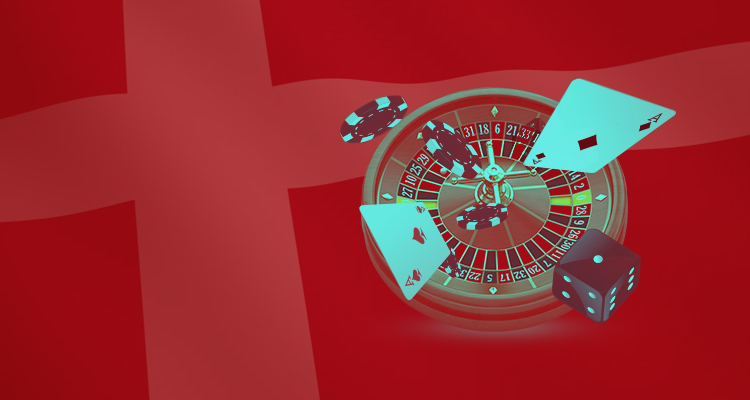Denmark’s Minister of Finance, Kristian Jensen, has gone to the airwaves to announce the possible relaxation of Danish internet gambling restrictions. In an interview with a radio station, Jensen stated that the government was investigating reform possibilities that would allow for licensing for online gambling companies to do business in his country. If Denmark follows through on this endeavor, it would finally end the monopoly that has been controlled by Danske Spil for 60 years.
Danske Spil is the national lottery system established in Denmark in 1948 and introduced it’s first game the following year. Currently they offer a wide variety of games including number, instant and knowledge games. Although licensed for only one year at a time, no other licenses have been granted since Danske Spil was set up, thus creating a monopoly on gambling in Denmark. The government gets the majority of the profits at 80% with the rest being split between The Danish Sports Confederation and Olympic Committee and the Danish Gymnastics and Sports Associations.
This turnabout on the part of the Danish Parliament is apparently in response to pressure from the European Commission’s “reasoned opinion” of last year and talk of a possible lawsuit. The opinion given was that the EU found that the restrictions on the sports betting market that were in place by Denmark and other EU nations were contradictory to EU law. It also went on to state that the measures taken in order to restrict these services were unnecessary, disproportionate and discriminatory.
Under Danish gambling law, Danske Spil has been the only one who could legally offer and service games, lotteries and betting to Danish gamblers. This exclusivity clause has resulted in prosecution of competing gambling concerns and even newspapers that were carrying gambling advertising. This type of monopolistic system is what led the EU to investigate as part of its treaty compliance responsibilities. By taking its time in responding to the reasoned opinion issued, Denmark is risking further action by the European Court of Justice.
Finally the Danish Parliament seems to be relenting on its stance and with the New Alliance party is considering the ramifications of allowing international competition in the gambling market. Anders Samuelsen, spokesman for the New Alliance, has offered a proposal that would end the monopoly by Danske Spil. His statements have indicated the party’s position that it is pointless to try to protect something that is clearly a lost cause, given the potential of repercussions from the European Commission.
“Either the commission will come and take it away, or the monopoly will over time lose its footing as more players seek markets abroad,” stated Samuelsen. He continued on to add, “We must be able to guarantee that the money is still available. And by selling licenses to international gaming companies, a new source of income will be established.”
Karin Riis-Jorgensen, EU parliament member from the Liberal Party, was supportive of the Danish government’s softening, saying that Denmark would do well to look at other, more liberal, countries and how their systems comply with European regulations. By doing so, he said that Denmark should be able to create a “perfect system” by reviewing the experiences of other nations that are currently in compliance.
The possibility of the relaxation of Danish gambling law has many gaming concerns taking notice and making plans to enter the marketplace in Denmark. One online gambling group, Unibet, issued a press release congratulating the Danes. In the press release, CEO Petter Nylander expressed the desire to work together with the Danish government in “creating a modern, regulated and responsible Danish gambling market”.
The main purpose of Danish gambling law has always been the player’s protection. To that end, there is a very strict legal framework in place to control and regulate gaming activities and gambling companies. Part of the reason that Danske Spil has maintained its monopoly is the laws that state the Minister of Taxation may only issue gaming licenses to Danish companies that are set up as a limited liability company. There are even sections of the detailed laws that say lotteries are prohibited from targeting Danish citizens specifically. The only way to bypass this restriction is to be a charity set up to a certain city or geographical region.
The Danes have been slow to respond to the EU at least partially because of concerns that players would not be protected and that it would turn into a free-for-all, creating many gambling related issues for the government. Another reason for dragging their feet was the concern with replacing or supplementing the income provided by the partnership between the government and Danske Spil. The profits have long been relied upon for the benefit of athletics, culture and “other purposes for the good of the general public”.
Jensen expressed the concerns that the government has about allowing international companies to enter the Danish gambling markets in the same radio interview as the announcement of possible changes. The only way the government will open up the market is “if the foreign bookmakers can live up to the strict regulations we have for those who want to offer legal gambling in Denmark”. He continued with the comment, “I do not wish any Wild West situation. I want a regulated market.”
Denmark is not the only nation to come under scrutiny over gambling restrictions. The European Commission has also warned or commented on laws from several other countries including Germany, France, Italy, Hungary, Greece and others. The past few months have seen a noticeable difference in attitude by several of the governments involved and several have passed new laws regulating gambling more leniently. Although the Danish Parliament has dragged their feet for over a year, it looks like they will finally lighten up on gambling laws.


